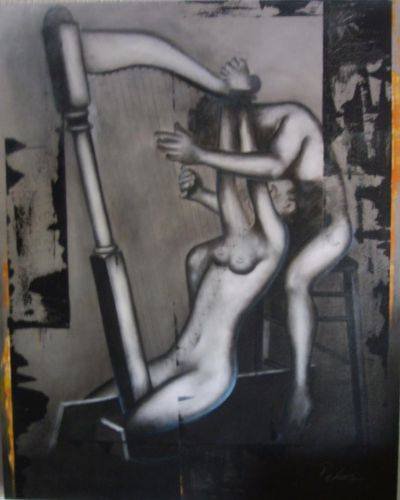Bakhtin is proposing that the novel is the perfect “environment” for discourse, in its multiple forms, to be manifested but not only manifested singularly or intertwined, but to be made fun of, as in a spectacle; the overturning of values that express more due to these forms than just what the content may develop. The poetics of the novel, as opposed to the poetics of poetry, allow different kinds of social languages to be used as in a parody. This parody or making fun of is not intended to be thought of as literal, not always at least, but as figurative. It is figurative because the intent for languages is to be taken out of their “comfort zone”. This comfort zone is their social group, profession, epoch, age groups, etc. This can be seen as type of manipulation of the words that have their specific function in their language. Poetry cannot do this because the poetry of language is a “unitary language”. I understand this as a language that perhaps tries to not be understood, tries to only draw reference (this would be the content) from inside the speaker and not from the exterior; the forms of poetry that will accompany the content are generated within itself also, just like the speaker (poetic voice), and not look for forms that are conditioned by social life. I would like to think this as an opposition between the expressions of a singularity versus that of a plurality. In other words, the novel can be seen as a collage of languages that exist in social life. This brings the novel to an area where it can express a condensed view of the world, of its social life. It is true that the novel will have an author and said author will have some intentions, will try to manipulate as much as possible with the contested (dialoged, heteroglot, stratified) language that is before their eyes and ears, but it is also true that the author looses relevancy because of the multiplicity of discourses external to the intentions of the writer that are dragged along with the language that is used. The unity of form and content give rise to genres that become a novel, that give prose meaning beyond just a plot or the utterances between characters. This is the novels discourse, the novels particular social language; to unite other languages, discourses, and compose mini worlds, mini epochs.
In Viktor Shklovsky’s article I did not understand what he meant by rhythm. Is the presence of rhythm the same as his account of what becomes habitual and automatic? Does rhythm account for the loss of deautomatized perception? Does rhythm in poetry make it too familiar? The repetition of sounds and or rhyme in poetry can allow for an easier remembering of the words or even a melody in case of a song. But does this put in jeopardy the content of the poem, the meaning of those words? In his examples of Tolstoy, he also concentrates on form only but not on the meaning of the words, the concepts. He focuses on the “defamiliarization” caused by horse narrator. What implications does it have? What is the text criticizing or making comment of? Certainly there is more to Tolstoy’s text than just defamiliarization. In any case, it seems that his examples actually make things familiar. How is the act of flogging familiar? I would say that the description of the flogging makes me familiar with what flogging is; the horse narrator familiarizes me with a new type of narrator. How does this defamiliarize from something with which I’m not familiar?
How can poetry defamiliarize the reader or listener? Defamiliarize from what? If poetry is not to be understood in relation to language of the outside, like the speech of prose is to be. He writes that prose speech is ordinary, easy, economical, and poetic speech is “formed speech”. Where does this formed speech come from? Poetry, in order to be poetry, must have a form and that is different than other types of writing and language in society. What, although, about the words that compose it? Where do the words come from? Is poetry only concerned with renovations and innovations of forms? This is important to understand. He talks about the “roughening of poetic language”. This roughening would cause defamiliarization of that form from previous forms. That although doesn’t take, again, account of the actual words used. The difference is then to see the beauty or ugliness of words used. My question is if the meaning of a poem doesn’t matter? Perhaps defamiliarization only happens once. After we encountered that which is not familiar, we become familiar with it. Does this then account for repeated changes in forms throughout the development of literature? What is the value of defamiliarization today?
